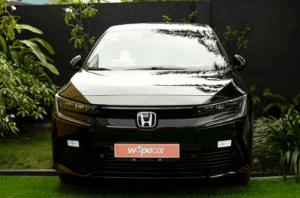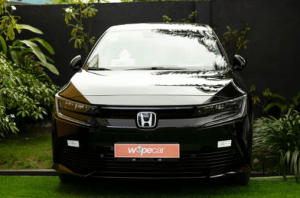Business
How peer-to-peer car rentals can drive a greener nation
By WopeCar Anyone who has sat in Accra’s rush hour knows the frustration: endless lines of cars, horns blaring, fumes hanging in the air. Beyond the inconvenience, this daily reality is a growing health risk. In 2024, Ghana’s annual average concentration of fine particulate matter was 35.77µg/m³...
B&FT
published: Oct 16, 2025

By WopeCar
Anyone who has sat in Accra’s rush hour knows the frustration: endless lines of cars, horns blaring, fumes hanging in the air. Beyond the inconvenience, this daily reality is a growing health risk.
In 2024, Ghana’s annual average concentration of fine particulate matter (PM₂.₅) was 35.77µg/m³; more than seven times the safe limit set by the World Health Organization. Medical professionals link this pollution to rising cases of asthma, heart disease, and other chronic illnesses.
Transport is a major part of the problem. Ghana’s roads are dominated by ageing, fuel intensive vehicles, most of them imported second-hand. A 2023 study found that Ghana’s cars consume about 50% more fuel on the road than their official ratings suggest. Ageing engines, poor maintenance, and constant traffic jams all contribute to the issue, meaning every trip releases more emissions than it should.
One practical way to tackle this challenge is through peer-to-peer car rentals. Instead of leaving a car idle at home, owners can rent it out when it is not in use. This makes better use of the cars already on our roads, reduces the pressure to import more vehicles, and provides extra income for households. In short, it turns parked assets into shared resources.
Digital platforms are making this easier by connecting owners and drivers securely. WopeCar, for example, has built a peer-to-peer system that allows people to list and rent cars seamlessly, with cashless payments.
In August 2025, the company introduced electric vehicle rentals, showing how this model can also align with Ghana’s broader push toward cleaner, more sustainable energy.
The environmental benefits are clear. By maximising the use of existing vehicles, peer-to-peer rentals help slow the rate at which new cars flood our roads.
This matters because in 2024 alone, Ghana spent more than GH₵4.2 billion on used car imports; vehicles that contribute to both congestion and rising emissions. Making better use of the cars we already have is one of the simplest ways to ease that burden.
Government policy is beginning to point in the same direction. The 2025 budget introduced an eight-year waiver on import duties for electric vehicles and components, alongside tax incentives for local assembly and plans for charging networks. These measures not only encourage the growth of cleaner cars but also create an enabling environment for innovative rental platforms to expand sustainably.

The benefits go beyond climate targets. Efficient use of cars can reduce the harmful particles that clog our city air, easing the strain on public health systems treating pollution-related illnesses.
It can also help manage congestion in neighbourhoods like Atomic-Kwabenya, where residents have called for urgent traffic solutions as urban expansion outpaces road development.
Peer to peer rentals are not a cure for Ghana’s transport or environmental problems, but they offer immediate relief by ensuring that fewer unnecessary cars are added to already crowded roads.
Challenges remain, but they are not impossible to solve. Many Ghanaians still view car ownership as a symbol of success, and the idea of handing one’s vehicle to another driver requires trust. Insurance frameworks and liability policies also need to evolve to support this model fully.
However, as digital platforms make rentals safer and more transparent, perceptions are beginning to shift. For many households, the opportunity to earn income from an underused car, while contributing to cleaner air, presents both a financial and environmental incentive.
Peer-to-peer rentals are not the cure for Ghana’s transport or environmental challenges. Broader investments in public transit, stricter emission standards, and cleaner energy sources will remain essential. However, this model offers a complementary step to what is already being implemented, leveraging technology and existing resources to reduce waste while improving mobility.
The congestion and pollution in Ghana’s cities are not inevitable. They are consequences of how we use and underuse the cars we already own. By rethinking ownership and embracing peer-to-peer rentals, Ghana can take a modest but meaningful step towards cleaner air, lower emissions, and more liveable cities.
The post How peer-to-peer car rentals can drive a greener nation appeared first on The Business & Financial Times.
Read More